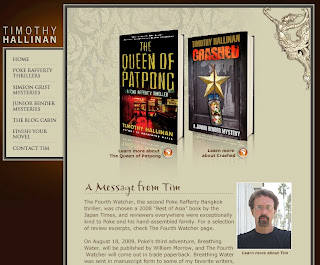Ummm…well, actually, the electorate of the State of São Paulo did.
Here’s the story:
In this country, the lower house of the national congress is called A Câmara dos Deputados, The Chamber of Deputies.
A deputado federal, summing up salary and allowances, earns the equivalent of about 23,000 U.S. dollars a month.
The average salary of a production worker about 1,500 U.S. dollars a month.
Is it any wonder that lots of people want to become federal deputies?
Enter this clown, Francisco Everardo Oliveira Silva.
Yes, folks, that’s right.
He’s a clown.
A professional clown.
His stage name is Tiririca, which, loosely translated, means “scoundrel”.
He had little formal education, came from a very poor family, and at the age of eight, began working in circuses in his native State of Natal.
By the time he was forty he’d launched a number of CDs and had appeared numerous times on television, but his was hardly a household name.
Until the national elections of 2010.
And then, with no history of politics, Tiririca launched his candidacy for the Chamber of Deputies.
On television he used appeals like, What does a federal deputy do? Actually, I have no idea. But vote for me and I’ll tell you.
He also made up a rhyme, and set it to music, which he used as a jingle. Part of it translates as It can’t get any worse, vote for Tiririca.
He also made a sincere promise to give money to the poor, especially his family.
Here is one of his television spots. That’s his father on the left of the screen. His mother is on the right. Tiririca tells us that “everybody” (meaning the other politicians) has started showing their families because it moves people emotionally. So he’s decided to do it too.
“Ask, Dad,” he says, “ask them for their votes.” And his Dad dutifully asks people to vote for his son and gives his son’s number on the ballot, 2222. Then Tiririica asks his mother to do the same. She does. He then says, “Smile, Mom. Smile, Dad.” And they do.
No platform. No campaign promises. Nothing.
But, on the 3rd of October, 2010, Tiririca was elected a Brazilian Federal Deputy with the second-highest plurality ever awarded to any candidate in the history of the elections in the State of São Paulo.
Hang on. Don’t stop reading just yet. The story isn’t over.
One of his opponents launched a suit to have him disqualified because he held the congress up to ridicule.
That was thrown out of court.
Then one of the major newsmagazines published a story that he was illiterate.
That was a serious charge.
There is a law that all federal deputies have to know how to read and write.
And part of the process of candidacy is to sign an affidavit testifying to that fact – which Tiririca did.
Instead of responding immediately – he disappeared, claiming he was exhausted by the election process and in need of a rest.
He surfaced three weeks later and was immediately subjected to a number of tests.
His lawyers claimed that he suffers from a motor deficiency that makes it impossible to hold a pen properly, but that he is able to read, scratch out letters and use a keyboard.
But they had a harder time explaining why he was able to understand only about 30% of a newspaper article.
Whether Tiririca will be seated, or not, is a matter still being judged by the courts.
But those of us familiar with the Brazilian congress tend to agree with him in one thing:
It can’t get any worse.
Leighton - Monday






























































